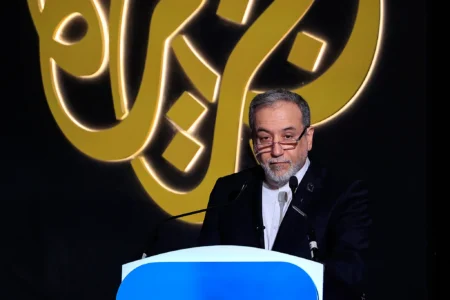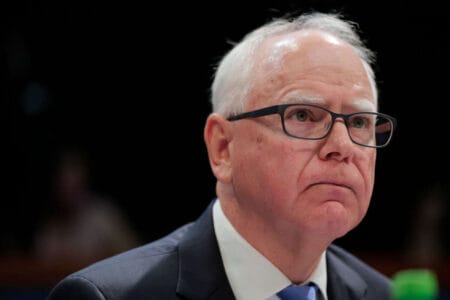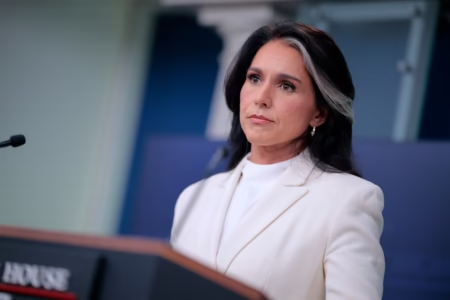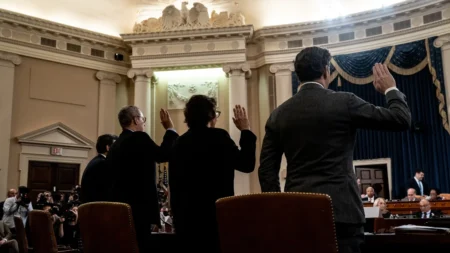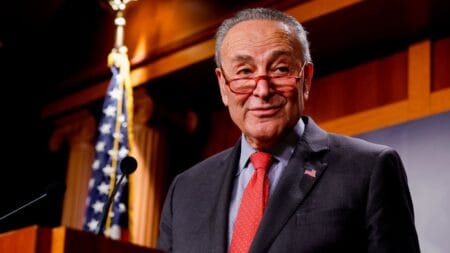WASHINGTON, D.C. — U.S. Labor Secretary Lori Chavez-DeRemer says that long-awaited changes to the H-2A agricultural visa program will make the system faster, more affordable, and more efficient, offering crucial relief to American farmers and ranchers struggling to meet labor demands—without threatening American jobs.
In an exclusive interview with Fox News’ Edward Lawrence, Secretary Chavez-DeRemer emphasized that the reforms do not expand the existing program or provide amnesty to illegal migrants, but instead consolidate its management and streamline operations under the Department of Labor.
“The program is already in play, and it’s already in law,” Chavez-DeRemer said. “This isn’t a new initiative—it’s a modernization of a system that’s essential to America’s food supply chain.”
The H-2A visa program, which allows U.S. agricultural employers to temporarily hire foreign workers when domestic labor is unavailable, has historically been managed across three departments—Labor, Homeland Security, and State. That decentralized model created delays and confusion for farmers, many of whom operate under tight seasonal timelines.
To resolve that, the Biden-era model is being replaced by a new system where the Office of Immigration Policy will be housed within the Department of Labor, directly under the Secretary’s purview.
“This is going to be the one-stop shop,” Chavez-DeRemer said. “Farmers and ranchers will now get concierge service—clear guidance, streamlined processing, and transparent communication. No more wondering where your workers are or when they’ll arrive.”
The reforms aim to reduce bottlenecks in visa approvals, provide timelier worker deployment, and cut administrative costs—an upgrade many farmers have called for over the last decade.
The Labor Secretary pushed back on claims that the changes could open the door to illegal immigration or displace native-born workers.
“This is not an amnesty program. And it’s not an expansion of anything,” she clarified. “It’s simply an upgrade to the existing law that ensures American farmers have legal, timely access to labor—only when American workers aren’t available.”
While concerns over job displacement persist, Chavez-DeRemer was firm: “We’re never going to displace the American worker.” She noted that the number of native-born workers has risen by 2 million since former President Donald Trump’s return to office, while foreign-born workers have decreased by 543,000—a trend she attributes to America-first economic policies.
“This is exactly what the president promised—focusing on the American worker,” she said. “And our department is here to support that.”
The H-2A program plays a vital role in the $1.3 trillion U.S. agriculture sector, particularly in regions where labor shortages have disrupted crop production and increased costs. Farmers have long argued that delays in hiring seasonal workers lead to reduced yields, higher food prices, and supply chain disruptions—especially during harvest season.
The updated system is expected to improve market predictability, which could benefit commodity prices and stabilize operational costs. Analysts also note that consolidating the visa process could help reduce legal and compliance risksfor employers, while increasing accountability in how migrant labor is managed.
Though the Department of Labor will administer the program more efficiently, Secretary Chavez-DeRemer reminded stakeholders that visa caps and quotas remain in the hands of Congress.
“If Congress wants to change the numbers, that’s their decision. Our role is to provide them with accurate data and ensure that the system works as intended,” she said.
In a separate part of the interview, Chavez-DeRemer addressed her role in a forthcoming executive order expected to provide clarity around 401(k) investment rules, particularly in light of recent regulatory back-and-forth over what investment types fiduciaries can offer.
She criticized the Biden administration’s 2022 rule for “putting their thumb on the scale,” suggesting it inappropriately limited investor choice by curbing access to private assets like cryptocurrency.
“It’s not the federal government’s job to decide where people put their retirement savings,” she said. “We rolled that back. Fiduciaries can now decide what’s best for their clients—whether it’s real estate, crypto, or other private assets.”



